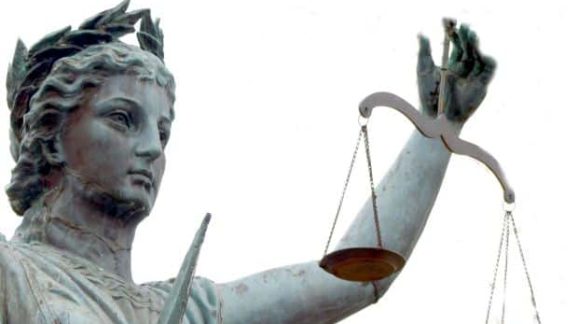The Nation’s Worst State Attorneys General 2015

Full Document Available in PDF
State attorneys general (AGs) are among the most powerful office holders in the nation, yet there are few institutional checks on their power. This new survey of the nation’s half-dozen worst attorneys general, like the 2007 and 2010 studies that preceded it, focuses on the most egregious abuses of power by some of the nation’s most aggressive and overreaching state AGs.
Historically, the job of a state AG is to act as the state’s chief legal advisor, charged with defending the state in court and giving legal opinions to officials on pending bills and policies. In some instances, AGs are also empowered by state legislatures to enforce specific laws and assist district attorneys in prosecuting serious crimes. But increasingly, state AGs are ignoring these basic obligations and meddling in areas traditionally outside their purview.
In evaluating candidates for the worst state AGs, this study sought to identify those AGs who have engaged in noteworthy ethical and legal breaches, including violating the Constitution, fabricating legal norms, usurping legislative powers, hiring outside counsel (often campaign contributors) on a contingency-fee basis, and suing businesses over conduct occurring outside their own states. Particular attention was paid to news coverage of state AGs who appeared, or came close to appearing, in CEI’s previous AG ratings in 2007 and 2010, to see if their successors warranted inclusion this year, since a bad political culture and overreaching state AGs seem to go hand in hand.
Like other government officers, state AGs theoretically have limited powers, set forth by their respective state constitutions and statutes. These powers are also constrained by federal law. The U.S. Constitution’s Due Process and Commerce clauses, for example, forbid one state from imposing its laws on another or from seeking to regulate interstate commerce.
However, over the past 20 years many state AGs have increasingly usurped the roles of state legislatures and Congress by using lawsuits to impose interstate and national regulations and extract money from out-of-state defendants who have little voice in a state’s political process. This sort of activism may serve a state AG’s political ambitions, but it imposes real costs on consumers, businesses, and the economy. These lawsuits foster corruption; circumvent legislative checks on regulation, taxes, and government spending; undermine government transparency; and divert attention from core AG responsibilities.
State AG misdeeds can be roughly categorized as follows:
1. Ethical Breaches and Selective Applications of the Law. Using campaign contributors to bring lawsuits. Using the AG’s office to promote personal gain or enrich cronies or relatives. Favoritism towards campaign donors and other uneven or unpredictable application of the law.
2. Fabricating Law. Advocating that courts, in effect, rewrite statutes or stretch constitutional norms in order to make new law—for example, seeking judicial imposition of new taxes, regulations, or restrictions on private citizens’ freedom to contract—or making up regulatory requirements out of thin air.
3. Usurping Legislative Powers. Bringing lawsuits that usurp regulatory powers granted to the federal government or other state entities, or that are not tied to any specific statutory or constitutional grant of authority.
4. Predatory Practices. Seeking to regulate conduct occurring in other states—for example, preying on out-of-state businesses that have not violated state law and have no chance of remedy at the polls.
On the basis of these factors, and given the misdeeds highlighted below, the following have earned a spot on this year’s list of the nation’s worst state AGs:
1. Kathleen Kane, Pennsylvania—a long list of abuses, ranging from leaking confidential grand jury information to blocking corruption prosecutions to concealing contracts from public view;
2. Jim Hood, Mississippi—attempting to control Google’s search methods despite the gravest of First Amendment and federalism concerns; hiring outside counsel for lucrative cases, who then collected payouts that rightfully belonged to the state; repeatedly defending a clearly incompetent state pathologist’s ability to provide “expert” testimony in criminal trials;
3. Tom Miller, Iowa—chief negotiator of the $25 billion nationwide mortgage settlement, the costs of which were chiefly borne not by banks but by innocent third-party mortgage investors; key player in the Big Tobacco settlement, which put $85 million into the pocket of hand-picked trial lawyers, some whom subsequently became donors to Miller’s election campaigns.
4. Kamala Harris, California—disregarding repeated court warnings of prosecutorial misconduct’ misleadingly rewriting the wording of ballot measures in order to sway voting outcomes’ thwarting mergers that would have saved struggling hospitals in order to win favor with unions;
5. William Sorrell, Vermont—repeated flouting of state election laws; channeling contingency-fee lawsuits to campaign supporters; backing clearly illegal speech restrictions that were destined to be ultimately overturned; pioneering the imposition of retroactive Medicaid liability on tobacco companies;
6. Eric Schneiderman, New York—seeking campaign contributions from those who stood to gain or lose from his prosecutions; using payouts from his lawsuits as slush funds for his office; ignoring state corruption to the point where federal prosecutors had to step in.
It should be noted that Pennsylvania AG Kane made the top of our list before she was indicted in early August for leaking grand jury materials.